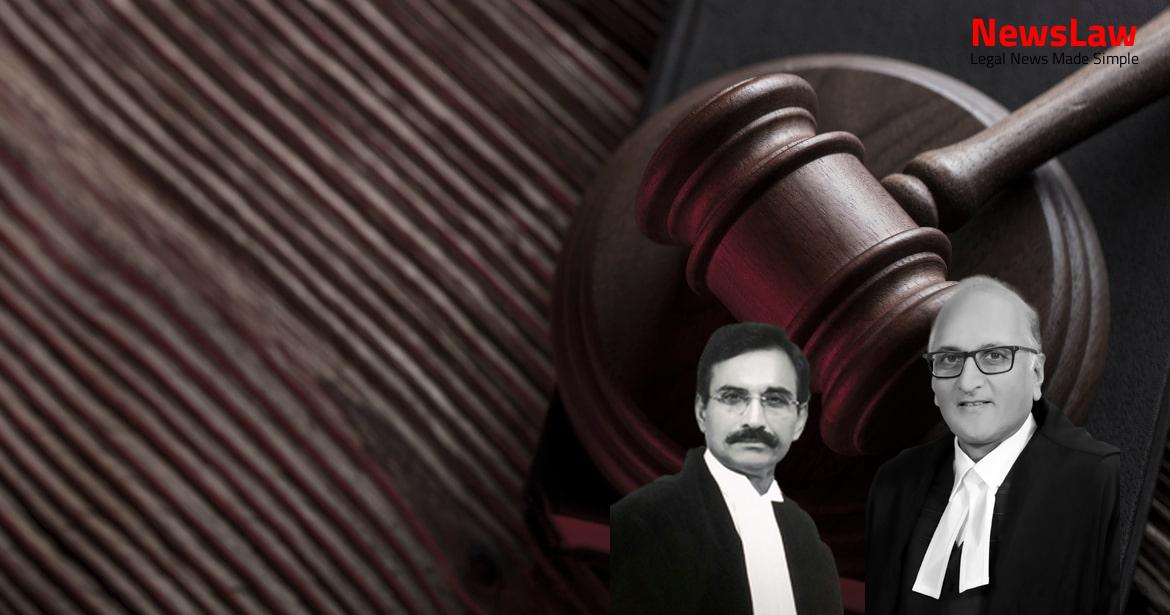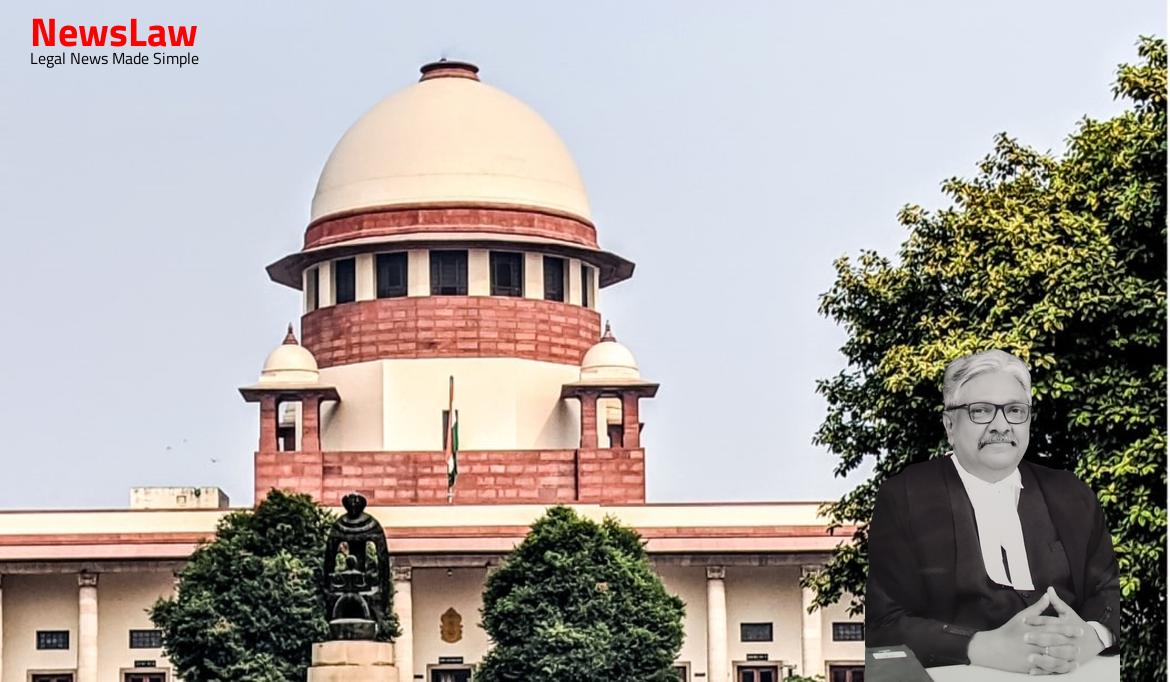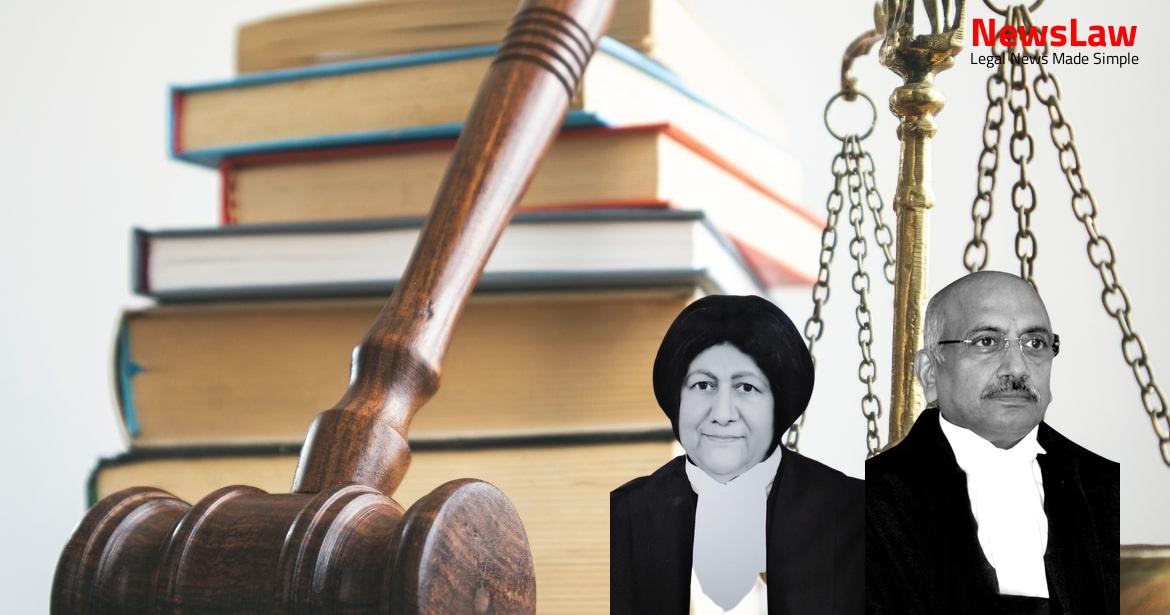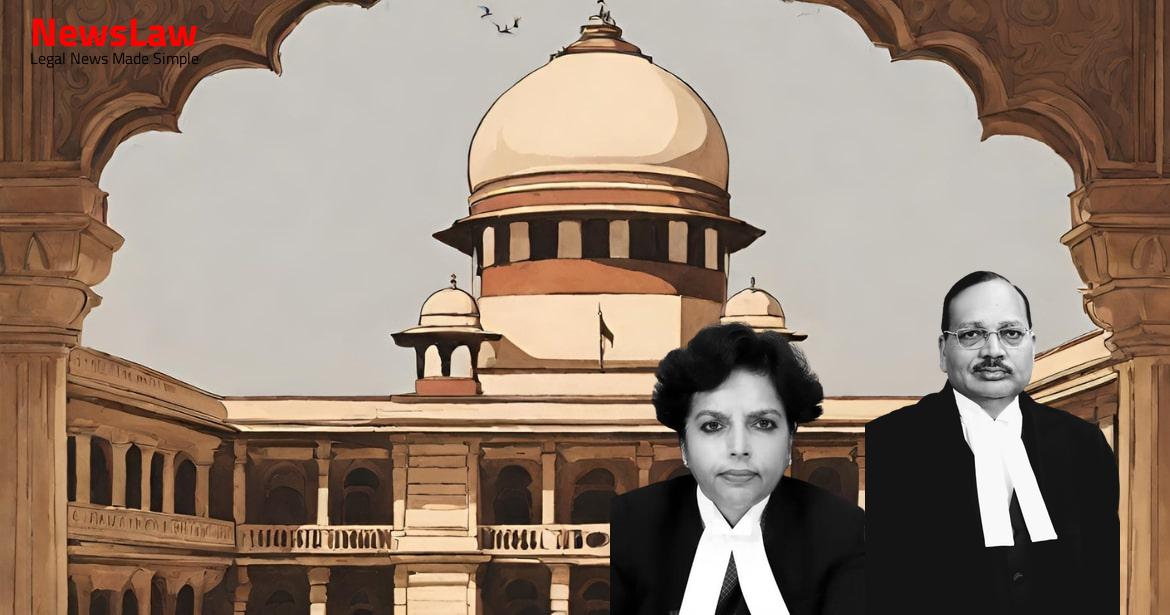The case at hand delves into the crucial legal analysis conducted by the court regarding the interpretation of hate speech laws. The focus is on dissecting the nuances of freedom of speech and the potential implications on societal harmony. Stay tuned for a comprehensive exploration of the court’s assessment and its impact on legal precedents.
Facts
- An appeal was made to the public to assist in identifying the perpetrators of the crime
- A warning to not breach communal peace and harmony was issued
- Some suspects had already been arrested and interrogation was ongoing
- Complaint filed by Dorbar Shnong alleging incitement of communal tension and defamation by the Appellant on Facebook.
- FIR registered and notice issued to the Appellant under Section 41 A Cr. PC.
- Habeas Corpus filed in the High Court of Meghalaya at Shillong for quashing the FIR.
- High Court judgment dated 10.11.2020 dismissed the Criminal Petition No 9 of 2020.
- High Court found prima facie offence under Section 153 A IPC was made out due to the Facebook post.
- High Court observed potential for rift between communities due to reference to attacks on non-tribals by tribals.
- Call for action by the police force and Dorbar Shnong to identify criminal elements in the jurisdiction.
Also Read: Legal Analysis on Seniority Fixation in Contempt Petitions
Arguments
- Appellant’s counsel argued that the Facebook post should be read in its entirety.
- It was submitted that there was no intention to promote enmity or hatred between communities.
- Relied on judgments of the Court to argue the comment should be judged from the standpoint of a reasonable, strong-minded, and courageous person.
- The need to rise above community interests, caste, and creed to call for justice was emphasized.
- The Respondent-State argued that the Appellant, being a renowned journalist, should be more responsible with public comments.
- Appellant asserted her right under Article 19 (1) (a) of the Constitution of India and voiced concerns about chilling effects on free speech due to criminal prosecution.
- Appellant argued that the offense under Section 153 A IPC was not made out and the FIR against the Appellant should be quashed.
- State’s counsel argued that the appellant’s comment may incite communal disharmony.
- The High Court’s decision to dismiss the application under Section 482 Cr. PC was supported by the State’s counsel.
- The State’s counsel urged the court not to interfere as the investigation is ongoing.
Also Read: Interpretation of Section 80-IA Deductions
Analysis
- The Appellant’s Facebook post pleading for equality for non-tribals in Meghalaya was not intended to promote class/community hatred.
- The post did not have the intention to incite violence or enmity between communities.
- Mere expression of ideas or grievances, even if strong, does not necessarily constitute an offense.
- The focus of the offense under Sections 153A and 505 (1) (c) is on promoting feelings of enmity or hatred, which was not the case here.
- The Appellant highlighted discrimination against non-tribals in the state, calling for action against criminal elements rather than targeting a specific community.
- The language and context of the Facebook post must be considered in judging the intention behind the writing.
- The matter complained of under Section 153A must be viewed in its entirety rather than isolated sentences.
- Speech crime is punishable under Section 153 A IPC.
- Promotion of enmity between different groups on various grounds is punishable.
- Section 153 A of the IPC outlines the promotion of enmity and acts prejudicial to harmony.
- The section covers actions such as promoting disharmony, hatred, or ill-will between groups.
- Offences under Section 153 A carry imprisonment and/or fines as penalties.
- Restrictions on free speech can be imposed in the interest of various factors such as national security and public order.
- The prosecution needs to prove the existence of mens rea for the offence under Section 153 A.
- Analysis of the ingredients of Sections 153 A and 505 (2) IPC in Bilal Ahmed Kaloo v. State of A.P.
- Focus on the effect of the expression, whether likely to expose the targeted person or group to hatred by others.
- Restricting the interpretation of ‘hatred’ to extreme manifestations like detestation and vilification.
- Promotion of feelings of enmity, hatred, or ill will through words, signs, or visible representations under Section 153 A.
- Promotion must involve making a publication or circulating a statement or report containing rumour or alarming news under Section 505 (2).
- Mens rea is a necessary ingredient for the offence under Section 153 A and 505 (2).
- At least two groups or communities must be involved in promoting feelings of enmity, hatred, or ill will.
- Merely inciting the feelings of one community without reference to another cannot attract the sections.
- Publication of words or representation is essential under Section 505.
- Judgment in Ramesh v. Union of India: Words used in criminal speech should be judged from the standpoint of a reasonable, strong-minded person.
- Referral to the Canadian Supreme Court decision in Saskatchewan (Human Rights Commission) v. Whatcott for interpreting ‘hatred’ in hate speech provisions.
- Application of an objective test to determine if a reasonable person, aware of the context and circumstances, would view the expression as exposing the protected group to hatred.
- The citizens have a right to expect and articulate action according to the law
- Disapprobation of governmental inaction should not be considered as promoting hatred between communities
- Free speech of citizens should not be stifled unless it poses a risk to public order
- The appellant cannot be implicated in criminal cases for expressing disapprobation of governmental inaction unless it affects public order
- No case is made out against the appellant for an offence under Section 153 A and 505 (1) (c) IPC
Also Read: Judicial Analysis on Selection Process
Decision
- The FIR PS Case No.72 (7) 2020 dated 06.07.2020 registered at Police Station Laban is quashed.
- The Appeal is allowed.
- The judgment of the High Court is set aside.
Case Title: PATRICIA MUKHIM Vs. THE STATE OF MEGHALAYA (2021 INSC 213)
Case Number: Crl.A. No.-000141-000141 / 2021



